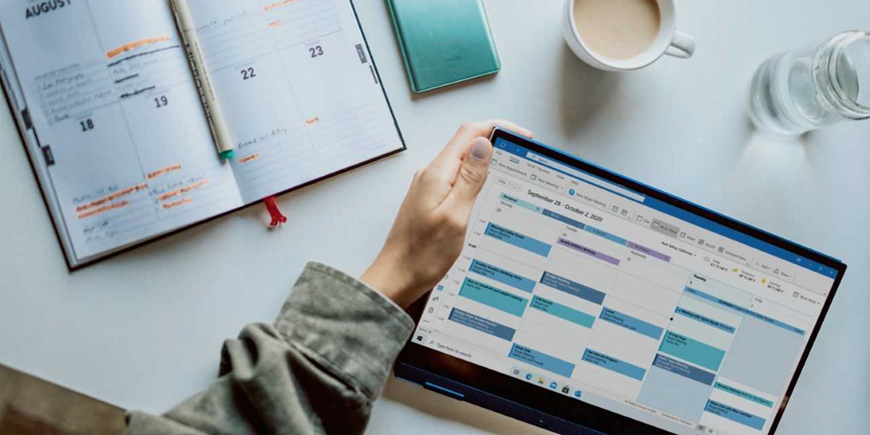
Working in a full-time position in an office involves a lot of online communication and file management, thus staying organized is the key to success. In my job specifically, my main tasks were replying to emails and messages on social media as well as posting on the platforms, creating a monthly newsletter, designing promotional graphics, and updating webpages. But no matter the occupation, whether you’re a worker or a student, these tips may help you stay organized and be effective.
This will allow you to prioritize specific tasks that need to be completed earlier than others.
It’s like keeping up with the weekly readings while taking courses; if you fall behind, your work will only pile up. Getting each job done in a timely fashion will help prevent procrastination and make a good impression on the supervisor and colleagues.
Maintain a consistent schedule. Have a list of necessary tasks to get done each workday, whether that may be checking emails or tidying up.
Sometimes it can take weeks of experimenting with different routines to find the perfect one for you. This process will feel rewarding later and each day will run smoothly when good habits are made. Plus, keeping a checklist of repeated tasks is useful to look back to and make sure nothing has been missed.
Put all your plans, meetings and assignments in one place so that you will never forget anything. Some people prefer an online calendar, and that is effective too.
This helped me a tonne. Until I bought an SFU annual planner, I had been underestimating the magic it could do to my life. When all important dates, meetings, and deadlines are saved in one organized notebook, the likelihood of forgetting a task will be slim to none.
It’s tempting to make your brain think you’re working faster, but in reality it slows the process and does not maximize memory capacity. Focusing on one thing at a time pays off.
Don’t let multitasking trick your brain! Even on a time crunch, just get one thing done at a time so that you’re less likely to make errors and won’t end up with multiple half-finished tasks at the end of the day.
Having twenty tabs side by side makes the workload seem endless, so break them up into sets of tabs and only have one window visible at a time.
Not only will it be hard to navigate your tabs... depending on how old your laptop is, this could cause it to freeze or crash. A stressed out device will lead to a stressed out you.
When you are unsure of how to do something, remind yourself that the internet can lead you to answers and tutorials instantly. But if it doesn’t help, don’t hesitate to reach out to a colleague or supervisor, of course.
Searching for answers online is usually the easiest and quickest way to go. You can also find good resources for tips on how to maintain a balanced lifestyle and how to improve professional writing skills.
To avoid wasting time re-writing every message, keep a list of common replies that you can just insert whenever it makes sense.
This was a good time saver for writing emails and replying to DM’s and comments on social media, especially for frequently asked questions.
Sometimes it’s better to draw a plan in your notebook instead of writing it in words or taking mental notes. Get creative when brainstorming, and maybe it will become easier to expand on your ideas.
Visualizing the ideas in your mind might just make it a little bit easier to think. Throughout the whole work term, I’ve kept a notebook on my desk so that I could write to-do lists and draw ideas whenever I felt overloaded mentally.
Those are the 8 lessons I’ve learned from my first 3 months working in an office as a communicator, and I hope these tips are useful to some current or prospective students and workers! I look forward to discovering more strategies during my next semester of co-op.




























